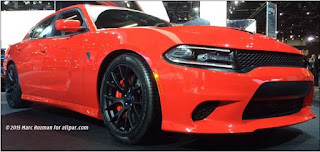
If you are tempted to cut corners on
the purchase of your next used vehicle to save money, you may want to
reconsider. Even though you can often find deals to save money up front, it
usually comes back to bite you.
Simply put, getting a good deal on a used car spans beyond the purchase price.
You also must consider the little things that accompany the monthly payment
such as insurance, gas, maintenance and repairs. This may seem like a lot to
afford, but it doesn’t necessarily mean you won’t be able to afford the used
car of your dreams.
The costs of owning your ride is decreasing as time goes on. On average, the
monthly operating and ownership costs associated with owning a sedan is $739.67
(or $8,876 per year), according to a recent report released by AAA. Operating
costs include gas, maintenance and tires whereas ownership costs include
full-coverage insurance, license, registration, taxes, depreciation and finance
charges.
Here’s a detailed breakdown of their findings by vehicle type, based on a
15,000 annual mileage:

If you are blown away by these figures, don’t start worrying yet. Here are some
things to consider when shopping that can help you save later on down the line:
Gas
Wouldn’t it be grand if all cars
could run off of oxygen? Unfortunately, cars need gas, and gas is expensive.
Even hybrids require gas to function. Bummer.
So, when you’re shopping, you’ll need to pay attention to the fuel economy
ratings, both on the highway and in the city. Put this expense into your car
budget, and see how often you can afford to fill your tank. Even though you
can’t control gas prices, you can control how much you spend to fill up your
tank each week.
Maintenance
Extended warranties are great, but
they typically only cover major repairs. That means you’re on your own with the
day-to-day maintenance. It’s probably not a good idea to pick out the shiniest
model on the lot without first taking a moment to figure out the anticipated
maintenance costs.
Generally speaking, the older the
model and the higher the mileage, the more costly the maintenance. You also
might want to get the maintenance records to see if the vehicle was properly
cared for by its prior owner.
Tires
Don’t forget to take a peek at the
tires. If they are extremely worn, they will need to be replaced, which can set
you back hundreds of dollars out the gate.
Insurance
Besides the cost of the monthly
payment, car insurance is a top expense for your car. Unfortunately, it’s
illegal not to carry coverage if you live in any state except for New
Hampshire, so insurance is an expense you can’t avoid. But, the year, make and
model of your car can affect the cost of your insurance.
Depreciation
Unless you seriously intend to drive
the vehicle until the wheels fall off, you’ll want to purchase something that
holds value. Otherwise, be prepared to fork over the difference between the
sales price and what you owe when you want to sell or trade it in for a new set
of wheels. Don’t let bargains on the purchase price fool you. Before putting any
money down, look at the current asking price compared to older models to gain
some insight on depreciation. And, steer clear of rebuilt or salvaged vehicles
if you intend to earn any equity in your vehicle.
Bottom line, there is more to owning a car than just the car payments. You need
to set a budget that includes all of the costs so you can see what you can
reasonably afford.















